voter id laws
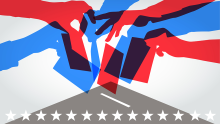
WHAT MAKES THE parable of the good Samaritan so iconic and powerful? There’s a lesson about helping others in need, sure. But as Jesus taught a few chapters earlier, everybody helps those in their inner circle or who can pay them back (Luke 6:32-34). No, the point of the good Samaritan parable (Luke 10:25-37) is that really “loving our neighbor” looks like tangible service, at some cost to ourselves, even when it’s someone outside our ethno-religious group. “Good Samaritans” are the sorts of people Jesus wants to present to the world to say, “These are my representatives.”
These days, there’s tremendous concern about the rise of “white Christian nationalism,” and with good reason. I’ve spent nearly a decade documenting the impact of this ideology—the belief that America has been and should always be for “Christians like us”—on Americans’ political views and behaviors. The results are alarming. But one potential risk of our being genuinely concerned about the real threat of Christian nationalism is that young Christians can feel like any political participation is tainted or suspect—we wouldn’t want to be Christian nationalists, after all. On the contrary, Christian political involvement can be a tremendous witness when we think about what it means to be good Samaritans today.
Americans who subscribe to white Christian nationalism think in terms of in-groups and hierarchies. They believe their group made the nation prosperous and that their cultural and political power is being threatened by ethnic and religious outsiders, such as immigrants, Muslims, secular persons, LGBTQ persons, and those who challenge the racial status quo like Black Lives Matter. Because of this, the political goals of white Christian nationalism are fundamentally anti-pluralist and anti-democratic. The goal isn’t to include more voices; the goal is power for “us.”

IN BACKLASH TO historic voter turnout, as of late May state legislators had introduced 389 bills to restrict voting in 48 states in the 2021 legislative sessions. The barrage of suppressive bills has been different from previous years in various ways. The sheer number of bills, the sweeping nature of the proposals, the procedural shenanigans, and the brazenness of lawmakers’ intent makes this like few legislative attempts in memory.
“Restrict” means the legislation would make it harder for Americans to register, stay on the rolls, and/or vote, as compared to existing state law. Most of these bills take aim at absentee voting and expanding voter ID requirements. Some would make voter registration harder, expand voter roll purges, and reduce early voting. Others seek to undermine the power of local officials and, in some cases, establish new criminal penalties to target those who run our elections.
Several of the concerning bills are bundled—a big number of anti-voter bills rolled into one. Take Georgia for example. Lots of people have heard about Georgia outlawing the provision of a bottle of water or a snack to people waiting in line to vote. But there’s more. Polling sites on wheels (mobile voting) are now effectively illegal in the state. Many voters who plan to vote by mail will be required to provide a driver’s license, social security number, state identification number, or a copy of identifying documentation. Ballot drop boxes will have to be located inside elections offices or early voting sites, likely resulting in the loss of convenient voting locations. Some provisions may exacerbate existing cyber-vulnerabilities or introduce new ones. These laws will clearly have a detrimental effect on the political voice of voters of color, especially those in the Black community. Mobile voting in Georgia, for example, was only used in Fulton County. That’s the home of Atlanta, which has the largest Black population of any city in the state.
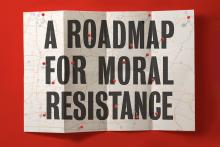
THE RIGHT TO VOTE, a foundation of our democracy and a fundamental attribute of citizenship, is under serious threat. In recent years, attacks on the integrity of the electoral system—the gutting of the Voting Rights Act, disinformation campaigns, foreign interference, and more—have weakened its overall infrastructure and cast doubt upon its results. Now we’re seeing repeated attempts, through propaganda and other means, to further undermine the system and discredit in advance the results of the 2020 election.
The president has attempted to co-opt real concerns about the upcoming election, claiming without evidence that it might be “stolen” as a result of fraud tied to vote-by-mail. His efforts deflect attention away from the ways that voter suppression efforts already underway pose a real danger, both to people seeking to exercise their hard-won right to vote and to the integrity of the electoral system itself.
As many have pointed out, there are numerous ways internal or external forces could call the results of the election into question: declaring a state of emergency that disrupts voting, delaying Election Day, interference by hostile foreign powers, tampering with voting machines or databases, and more. All of these represent legitimate threats, but perhaps the most likely scenario is that rampant voter suppression tactics impede enough voters in key battleground states to alter the presidential election outcome and which party controls Congress.
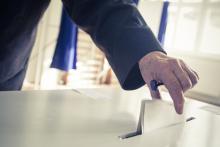
Are voting restrictions about voter fraud, or are they just a ruse to suppress likely Democratic voters?
Since 2010, conservatives have instituted voting restrictions in 21 states, the most well-known of which are laws that require photo IDs at the polls.
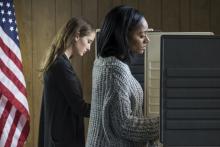
A judge upheld North Carolina’s controversial election laws on April 25, reports The New York Times.
The ruling comes months before a presidential election in a state that narrowly went to Barack Obama in 2008 and to Mitt Romney in 2012.
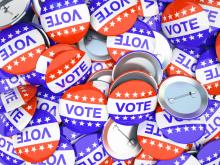
North Carolina's voter ID law, which requires would-be voters to display an acceptable form of government-issued voter ID in order to cast a ballot, went into effect for the first time in last night's primary. Early voting behaviors offered a first look at some of the problems that come with these voting restrictions, reports ThinkProgress. Namely, how young people are being blocked from voting.

On Tuesday, the Supreme Court struck down part of the Voting Rights Act that was enacted in 1965 to root out racial discrimination in voting. The specific section of the Act that was stricken — Section 4 — set forth a formula for determining which jurisdictions need federal clearance before making even minor changes to voting procedures. The impact of striking Section 4 is that the most important part of the Act, Section 5, is now rendered useless. Section 5 provides that states, cities, and counties with a history of racial discrimination in voting must “pre-clear” changes to voting procedures with the Department of Justice or a special court in Washington, D.C. Without the formula in Section 4 to determine which states, cities, and counties the preclearance should apply to, the preemptive protection provided by Section 5 no longer exists, and any future challenges to changes in voting procedure must happen after such changes are already in effect.
The majority of the Court felt that racial minorities do not continue to face discriminatory voting practices, and that the preclearance requirement was based on 40-year-old facts that had no logical bearing on present day. Chief Justice Roberts, Jr., wrote:
“Our country has changed. While any racial discrimination in voting is too much, Congress must ensure that the legislation it passes to remedy that problem speaks to current conditions.”
The practical application of Tuesday's decision is that states will be able to enact potentially discriminatory laws that previously had been blocked. This was made immediately apparent in Texas, which announced after the ruling that voter identification laws would go into effect immediately.